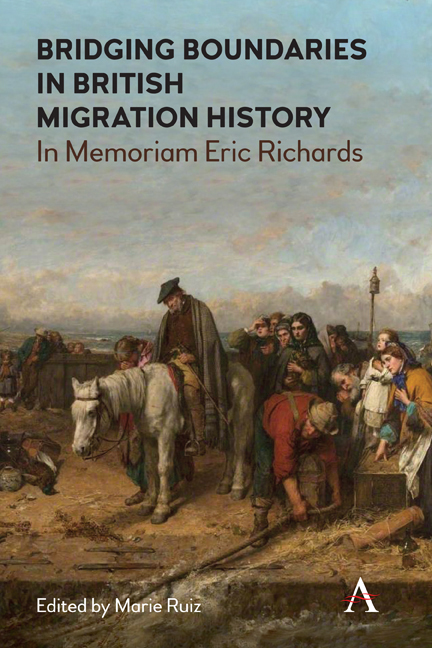Chapter 3 - The Distinctive Scottish Diaspora
Published online by Cambridge University Press: 20 January 2022
Summary
The untimely death of Eric Richards in September 2018 meant that his keynote at the Amiens conference in the Logis du Roy of the University of Picardy, Jules Verne, was sadly his last (and typically truly great) performance. In a tribute that I wrote for him in an earlier volume, I referred to him as a commanding figure and I intended that to be taken in two ways. At his considerable height, he was physically commanding; and in his research and publications, he was unquestionably intellectually commanding. Yet the joy of knowing Eric (as I was fortunate to do over several decades) was that this commanding stature (in both senses) never gave him any sense of superiority. He was always gentle, always sensitive to his interlocutors, always quietly restrained in his interventions, comments and questions in conferences. In addition, he was for ever good-humoured and even-tempered. He never seemed to be rattled, anxious or irritated, continually pleasingly calm in disposition, usually displaying his engagingly wry and quizzical, even sceptical, manner. He was also amusing, witty, a wonderful conversationalist and a pleasure to be with. It is typical of him that in his last e-mail to me before journeying to Amiens, he commiserated about a problem I was having with a publisher and went on ‘my most recent entanglement with that activity [publishing] required the excision of 30,000 words, all pure gold of course. My reviewers will now complain of superficiality, but such is life.’ All these characteristics were truly enviable, as were his major achievements as a historian.
It has often rightly been said that the key attribute of his writings was that he had an extraordinary capacity to combine the macro with the micro. Originally an economic historian, he never lost his feel for the understanding of economic contexts, although he could be gently dismissive of the excesses of an overwrought economic theorization. He was thus able to handle the big issues, the grand sweep of, for example, migrant history. But for him, migration was never solely about statistics, it was about people.
- Type
- Chapter
- Information
- Bridging Boundaries in British Migration HistoryIn Memoriam Eric Richards, pp. 51 - 76Publisher: Anthem PressPrint publication year: 2020



